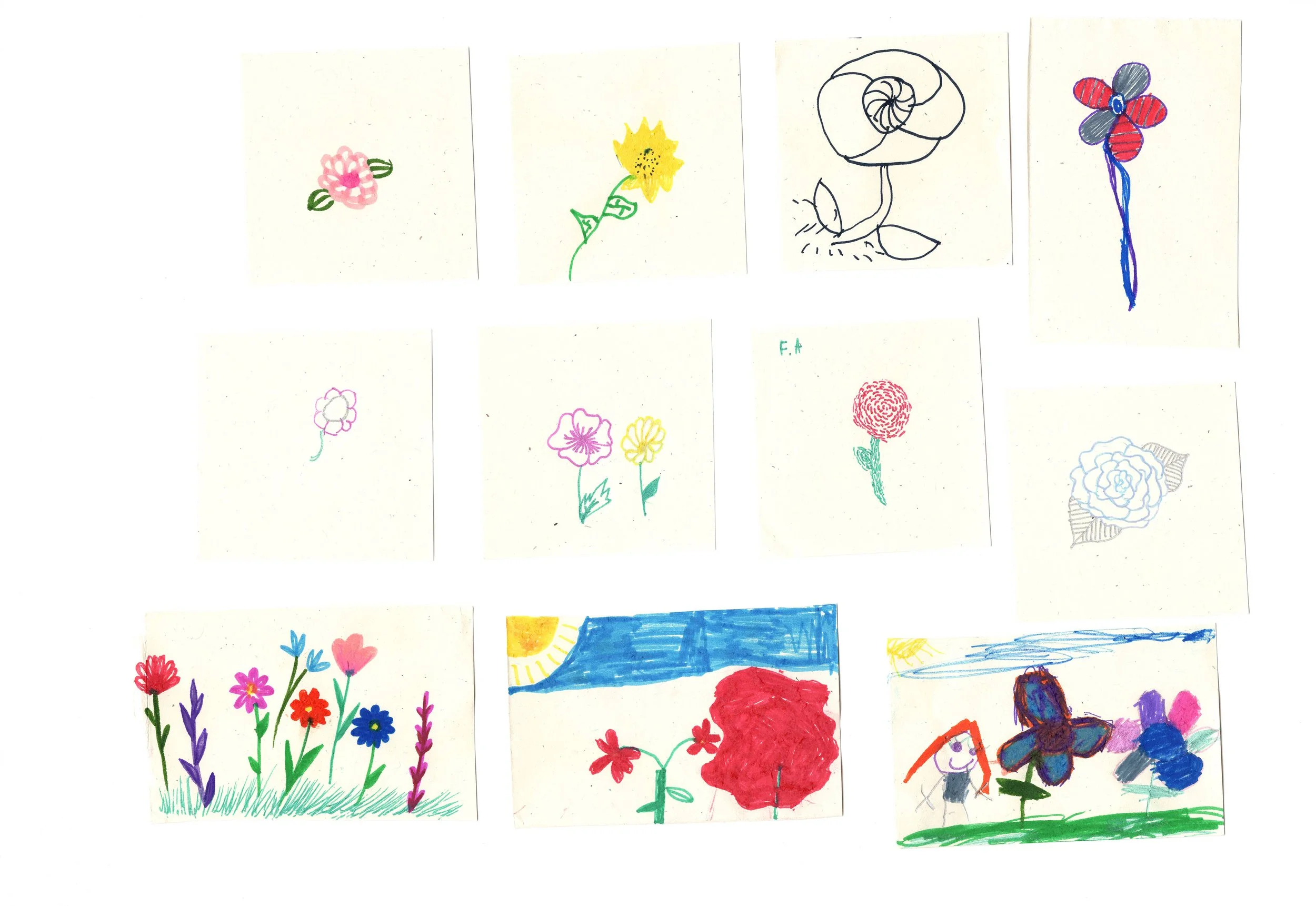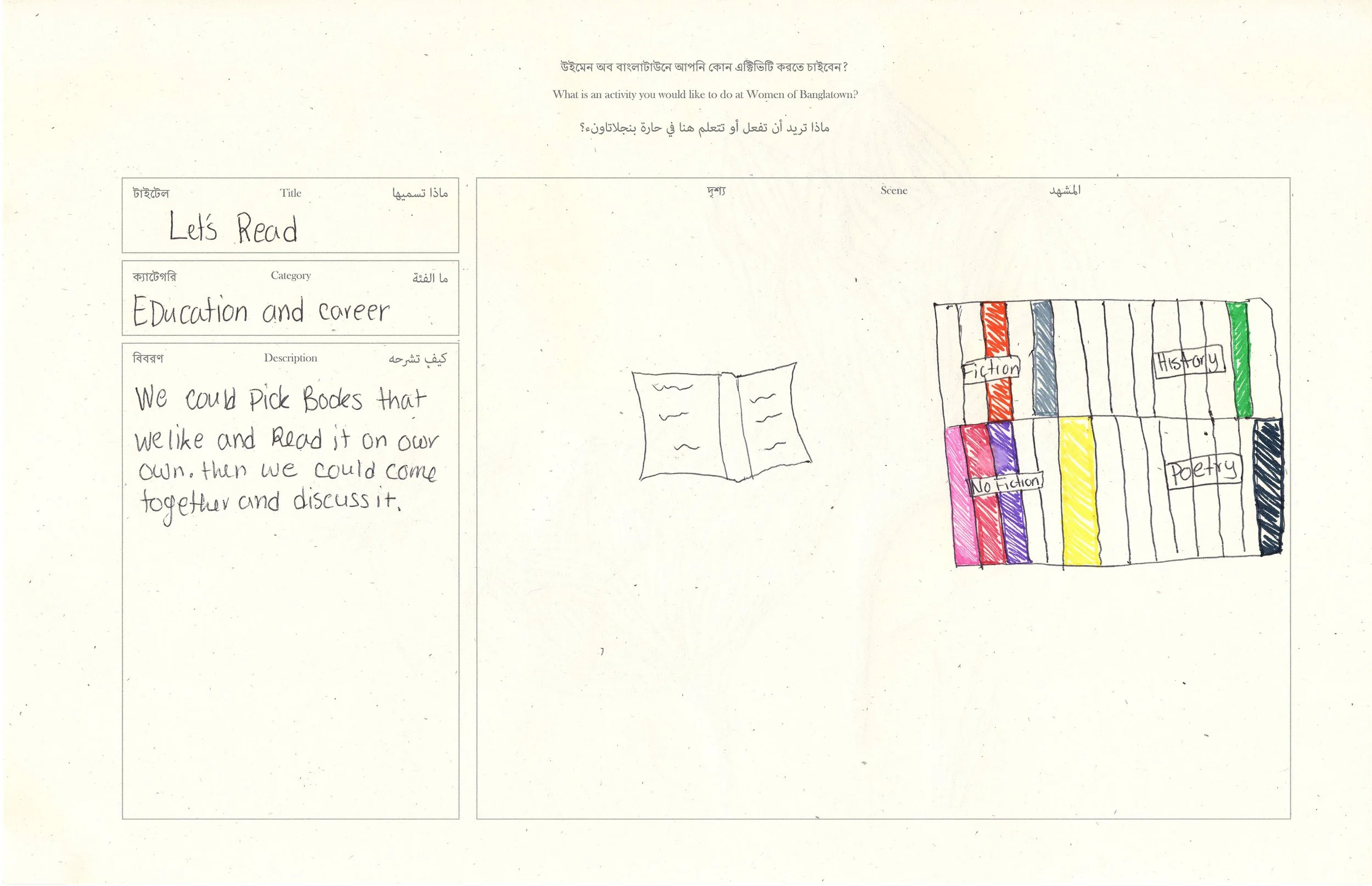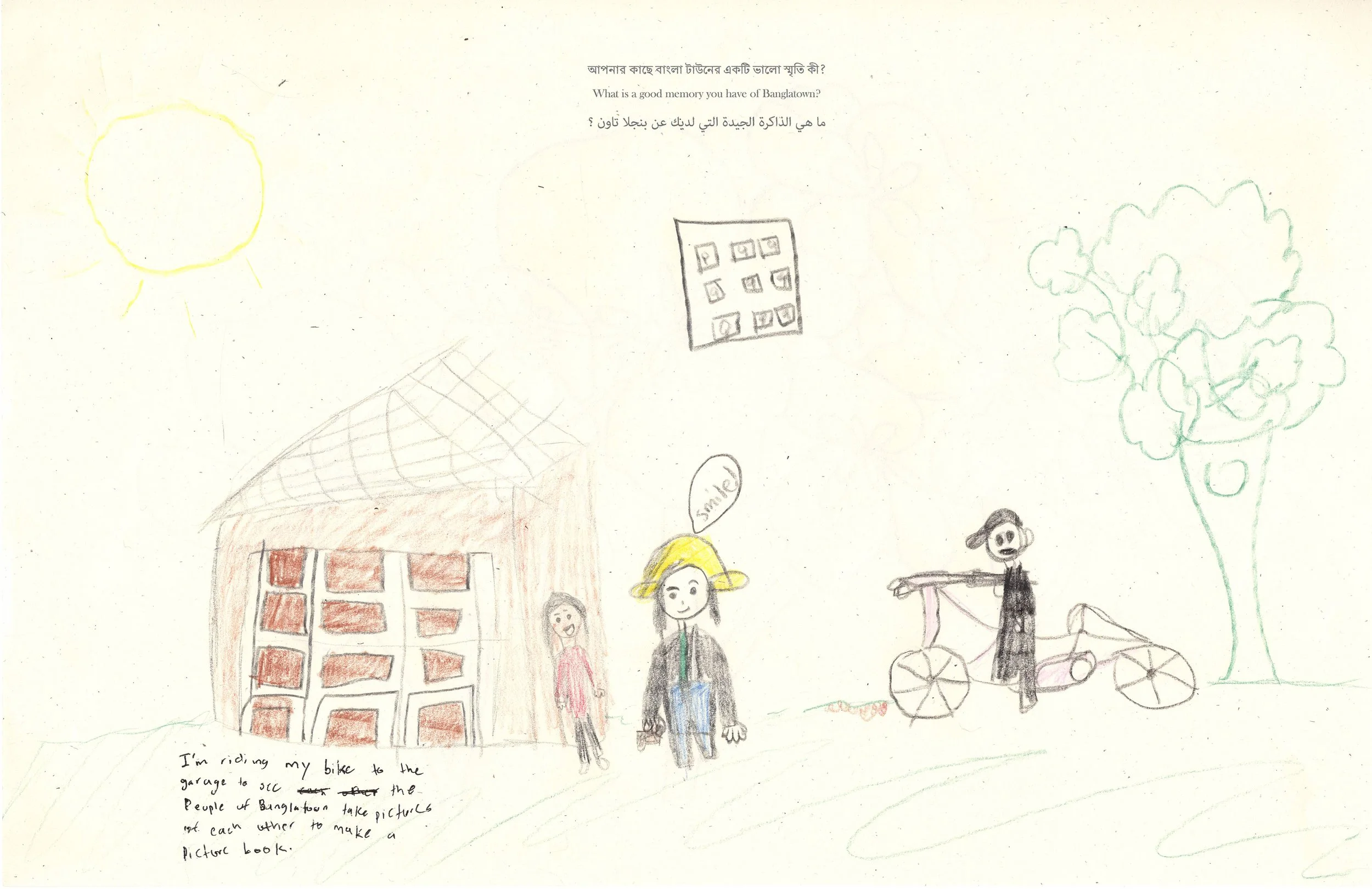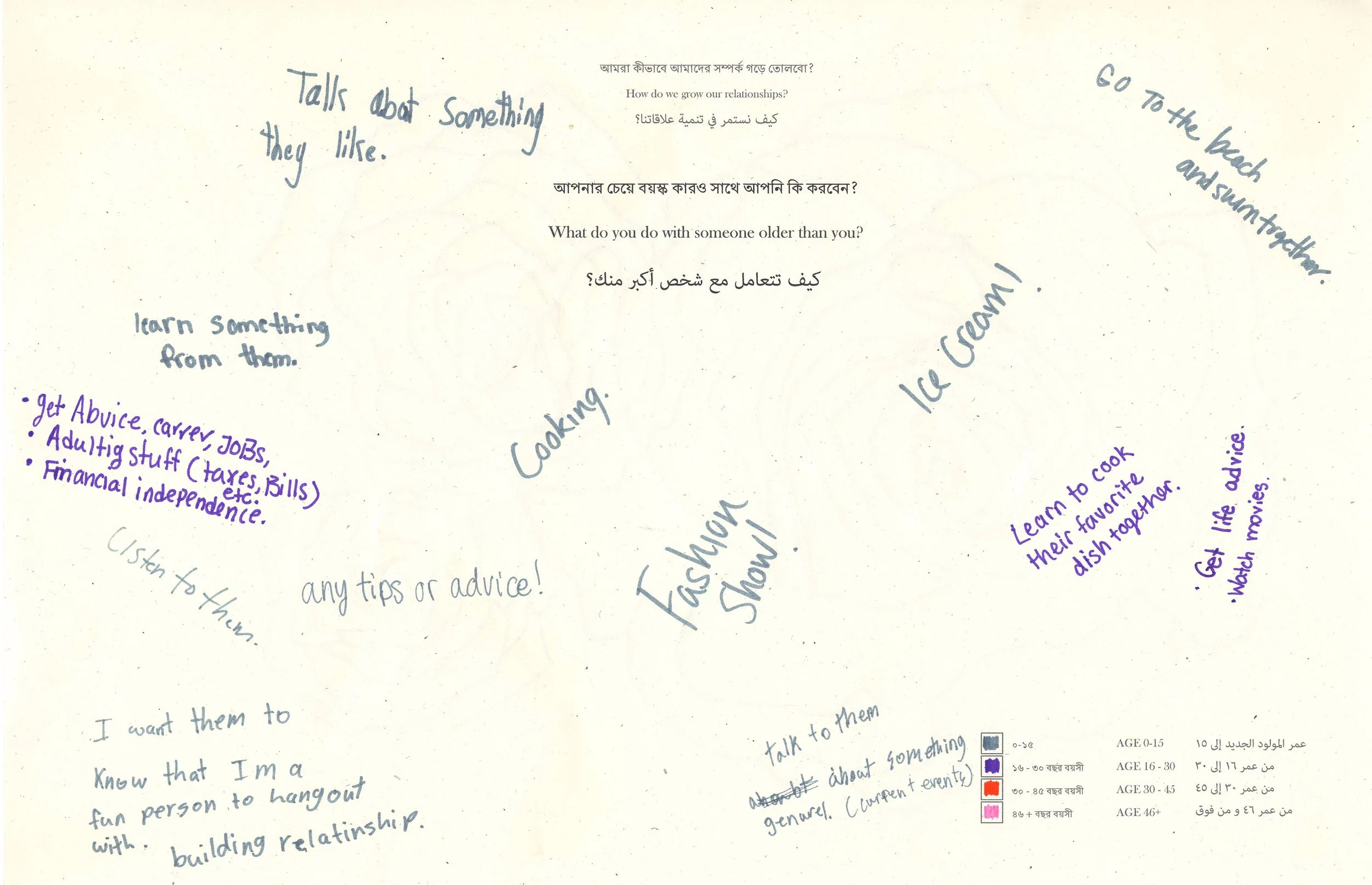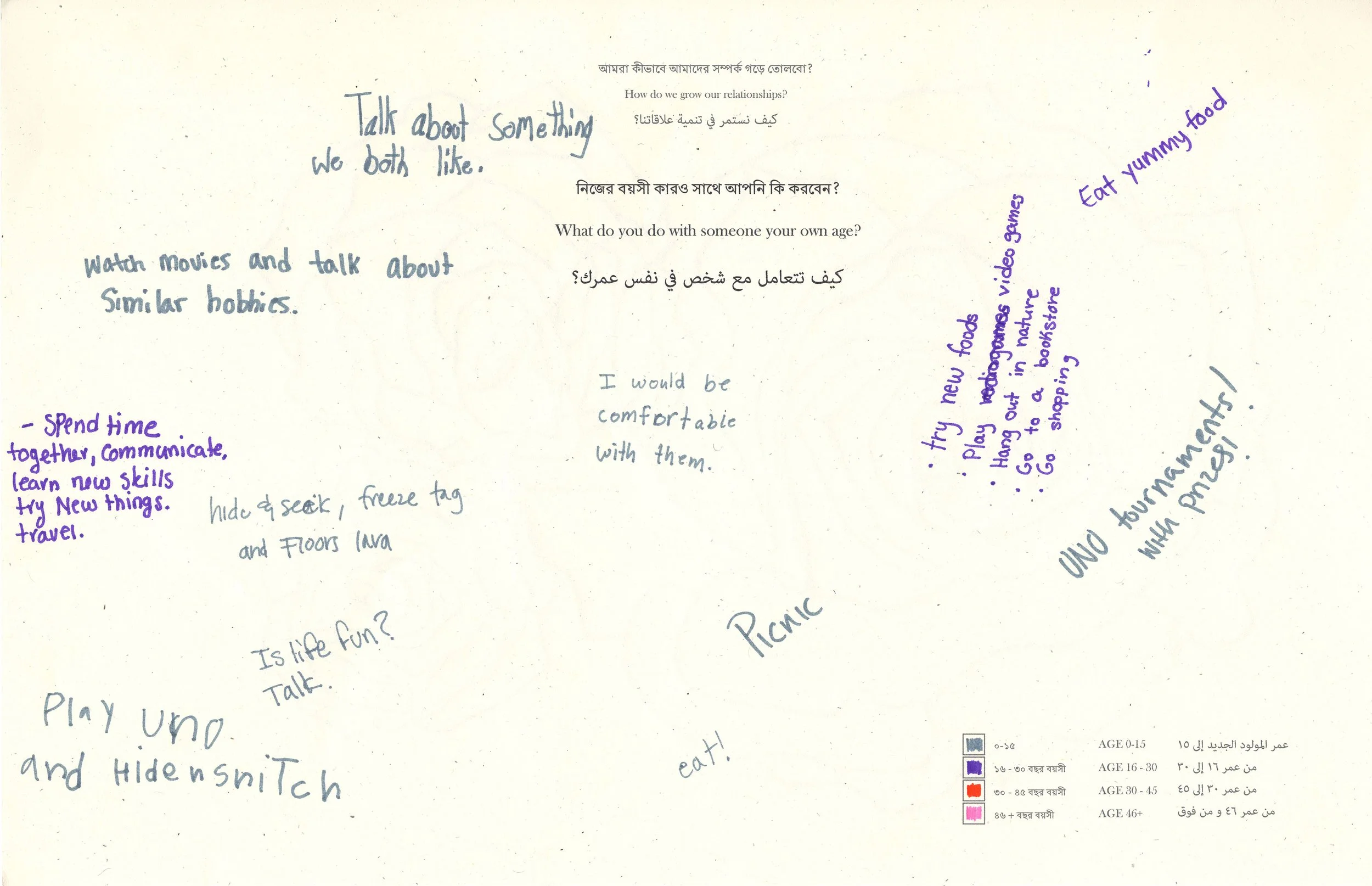Community Listening & Dreaming
WITH WOMEN OF BANGLATOWN
Participatory design and engagement to plan a welcoming community space.Women of Banglatown (WOB) provides free weekly art and self-care classes in a welcoming space where women and girls learn new skills and grow relationships. As a recipient of the 2020 Kresge Innovative Projects: Detroit planning grant, WOB initially planned to focus on ways to improve the area around their building. Their transition to virtual programming to remain safe during the COVID-19 pandemic pushed them to re-imagine their future programming and physical space. To bring this vision to life, WOB partnered with The Work Department, trauma-informed facilitator Jaya Thyagarajan, and the University of Michigan Community Technical Assistance Collaborative.
Together with WOB’s board of directors and Youth Advisory Committee, we developed and led a series of five virtual listening sessions with 39 girls and women in Banglatown. The sessions centered their perspectives and experiences, identified what resources and programs they need and want, and learned how they want to interact with and support people of all ages. Using a trauma-informed approach, we prioritized creating a safe, supportive, and empowering environment by building trust, fostering open communication, and respecting participants’ diverse lived experiences. Each listening session included individual reflection exercises where participants could sketch or write their responses, as well as small group and large group discussions. Insights from each session informed the next, creating an iterative process that allowed participants to shape the direction of the conversations. Key learnings emerged, including a set of foundational principles that participants defined as essential for a nurturing space:
Yes to being comfortable being ourselves.
Yes to respecting one another.
Yes to giving feedback to grow.
Yes to being willing to grow.
Yes to feeling safe to be vulnerable.
Yes to communicating with honesty.
Yes to asking for help.
Yes to offering to help.
Yes to being kind to yourself.
Yes to being kind to others.
Yes to working together.
Yes to accepting other communities and cultures.
Yes to putting your own needs first.
Yes to supporting each other physically, mentally and emotionally.
To build on themes identified in the listening sessions, The Work Department developed a set of interactive activities that could be adapted for small or large groups. Participants wanted to have programs and spaces that connect them to the natural environment, specifically gardens and flowers, so we were inspired to incorporate floral shapes that align with WOB’s existing logo and brand into the activity book. The activity book includes English, Bangla, and Arabic in order to be accessible to everyone in WOB’s community, and it was used to gather additional input from existing and potential members to inform the organization’s future.
Finally, we co-wrote and designed a report that captures WOB’s engagement process. The report put forth a big picture vision as well as tangible next steps. Its audience includes existing and potential funders, WOB members, and the broader Banglatown community. Since our work together, WOB has created its public community garden and outdoor space, while also making strides in developing its future home, designed collaboratively with its members.
PHOTOS BY
Ali Lapetina

